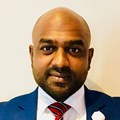
Breaking barriers: Women leading Africa’s operational transformation

Why operations matter
At the heart of this transformation lies operations, the engine room of every business. It’s where strategy turns into results, where resilience is tested and where the character of an organisation is revealed. Yet, operational leadership remains one of the most underrepresented areas for women. This gap is not about capability; it is about access, opportunity and dismantling systemic barriers.
Operations have traditionally been seen as a space defined by process, precision and toughness; qualities often coded as masculine. This stereotype is both inaccurate and limiting. Operational leadership is about people, adaptability and collaboration. Women leaders can help bring these qualities, and diverse teams consistently deliver stronger results.
The untapped potential
According to a 2024 report by BCG and Africa Business Leadership Coalition, women make up over 54% of Africa’s workforce, yet hold fewer than 20% of management and executive roles. That imbalance reflects a vast reservoir of untapped potential.
When people feel genuinely valued, they engage more fully, contribute more openly and commit more deeply. Inclusive leadership in operations is therefore not simply a cultural aspiration; it is a driver of performance, resilience and agility.
Actions for inclusive operational leadership
The true power of operational leadership lies in shaping systems. Leaders have a choice: they can either reinforce exclusion or build structures that actively remove barriers. This is where meaningful change begins.
Transforming processes to support equity, rather than reinforcing hierarchy, is one lever for progress. Expanding access to talent development, ensuring underrepresented groups are included in mentorship and advancement programmes is another.
Designing workflows that accommodate different working styles, while still driving efficiency, empowers participation across a wider spectrum of talent. These steps create not just opportunity but a sense of belonging.
At TransUnion, we have seen the impact of embedding inclusion directly into recruitment, development and daily operations. It is one thing to open the door; it is another to ensure that once inside, people receive the necessary support, resources and opportunities they need to succeed.
This is how we move beyond representation to transformation, where diversity becomes a source of innovation and strength, rather than a box to tick.
Leadership that reflects Africa’s future
Redefining leadership also requires us to move beyond traditional, individualistic notions of success. Leadership today is not about fitting into systems designed decades ago; it is about redesigning those systems so more people feel they truly belong.
This shift begins with asking critical questions:
- Who is missing from the table?
- Whose voice has not been heard?
- What perspectives could fundamentally transform the way we operate?
The answers to these questions guide us toward more inclusive and impactful models of leadership.
A call to action
As leaders, we must be visible in this work. Sharing our journeys, including successes, setbacks and lessons, helps demystifies leadership and opens pathways for those who may not have envisioned themselves in similar roles.
Mentorship, advocacy and sponsorship are not side projects; they are central to inclusive leadership. Each of us has the responsibility to make space at the table and when necessary, to reshape the table itself.
The future of operational excellence in Africa depends on how seriously we take this responsibility. Inclusive leadership is no longer optional. It is the foundation for innovation, agility and sustainable growth.
Africa’s demographic trends and entrepreneurial spirit hold immense promise. But that potential can be realised if organisations are willing to break with outdated habits and embrace a leadership model that reflects the diversity and dynamism of the continent itself.
The choice before us is clear. We can cling to old models that exclude and limit potential, or we can embrace a new definition of leadership; one that dismantles systemic barriers, values diversity as a strategic advantage and ensures that every person can thrive. The leaders who choose the latter will not only drive equity but will build stronger, more resilient organisations capable of lasting impact.
Inclusive leadership is about more than breaking barriers. It is about building belonging. And belonging is what unlocks the full power of people, teams and organisations. That is the leadership Africa needs and the leadership we all have a responsibility to create.

